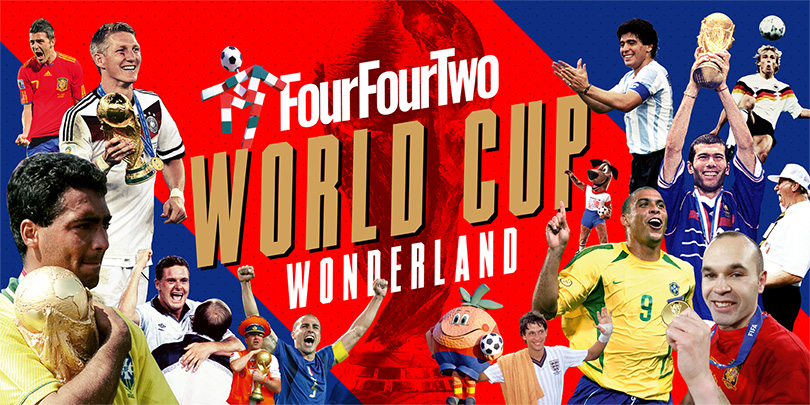Olá! World Cup 2014: When Brazil broke under the weight of expectation – and cried again
The Seleção's capitulation, James Rodriguez's show-stopper and another crushing England disappointment: Brazil's summer showpiece offered up plotlines to make nations weep
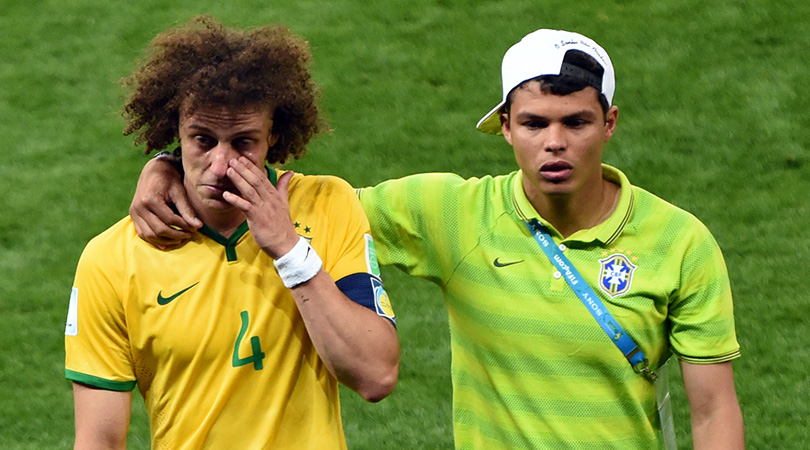
There were essentially two World Cups in 2014. Thirty-one teams played in one, and one played in the other. For most of the world this was the quadrennial month of football that everyone looks forward to; an international tournament that, while everyone knows is not really the top level of the game it once was, still carries enough kudos to think it is.
But for Brazil, this wasn’t a normal World Cup. It was hardly a World Cup at all.
More it was a chance to salve a 64-year-old wound; to try to banish the demons of 1950's Maracanazo and add to the five World Cups they’d won since 1950. Winning it is one thing, though: doing it at home is something else entirely, not least for Brazil.
The weight of a country
The tragedy for Brazil is that if this World Cup had been four years later, they might have managed it, instead of creating a whole new national trauma to pile on top of the last one. Brazil started their home World Cup with a 22-year-old Neymar supported by Fred, Oscar and Hulk.
In 2018 it’s Neymar + Four Years, alongside Gabriel Jesus and Philippe Coutinho, with Roberto Firmino in reserve, and with a manager in Tite who isn’t resting on past glories. Four years ago the emphasis was so squarely on Neymar, their hopes so unreasonably pinned to one player, that when he got injured and missed their semi-final, they reacted as if they were driving an F1 car and all four wheels had fallen off simultaneously.
We probably should have seen what was coming in the semi-final against Germany when they carried his shirt out before the game, as if he’d been involved in a fatal accident. Football causes people to lose their minds at the best of times, but this was extraordinary.
Get FourFourTwo Newsletter
The best features, fun and footballing quizzes, straight to your inbox every week.
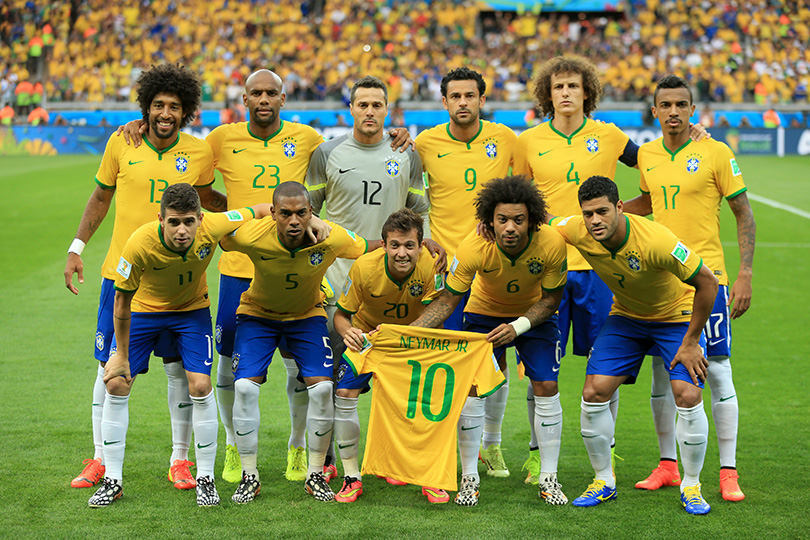
But if you looked beyond a host nation constantly on the verge of tears, both good and bad, there was a pretty fun tournament. Germany’s victory was one of the least surprising surprises in World Cup history; a team that not many fancied but just seem to win, even if their team isn’t actually much good. On this occasion, though, their team was very good indeed. Fans of narrative probably wished failure upon them, in the semi and final at least.
A better story would have been Brazil curing themselves, or Leo Messi quietening the voices that insist he cannot be considered the greatest of all time because he hasn’t won a World Cup on his own.
Messi was outshone by another left-footed South American wonder, James Rodriguez, a player who has flattered to deceive since but was terrific for those few weeks in Brazil. His goal against Uruguay, an absurd chest-and-volley number that few would even attempt let alone pull off, was given another aesthetic flourish after crashing in off the bar.
Brazil 2014 levelled the record for the most goals scored at a World Cup – 171 (admittedly one that only matters so much, given the increase in number of games since 1998). There were 15 group stage games in which four or more goals were scored and, perhaps most importantly, there were a handful of truly iconic games.
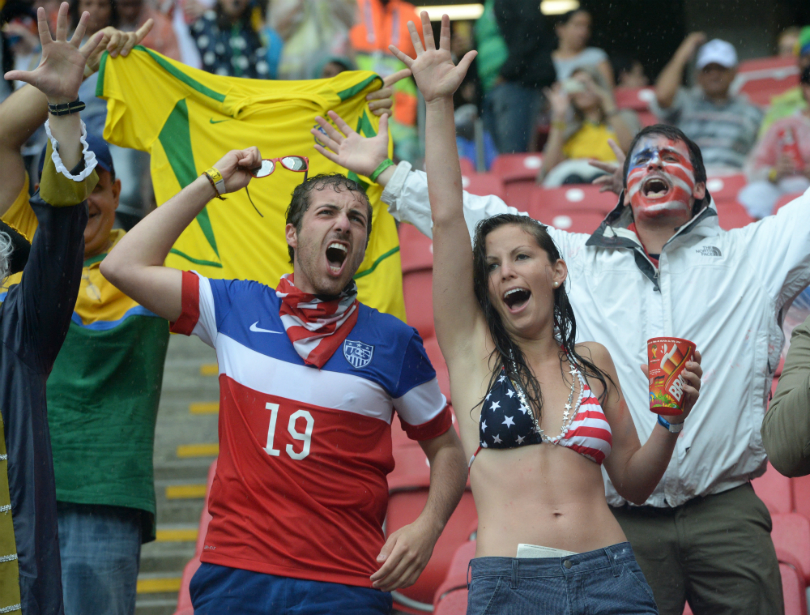
The end of an era
Spain’s opening-game demolition at the hands of Holland was a little like the global financial crash in 2008; an ostensibly sudden, cataclysmic event, and the end of an era that few people saw coming but probably should have. It represented the end of two eras, in a way: most obviously Spain, the greatest international team of this generation coming to the end of their cycle of dominance, but this was also an ending for the Dutch.
The optimist might have thought their unexpected trip to the semi-finals was the start of a reinvention, but as it turns out, it was a final lusty swing; the last fart escaping from a corpse. Louis van Gaal, Robin van Persie and Arjen Robben got the band together for one last time and played the hits, battered Spain, mugged Mexico, but eventually lost to Argentina in a semi-final that even most involved probably have no memory of. After that they crumbled, and haven’t played a tournament game since.
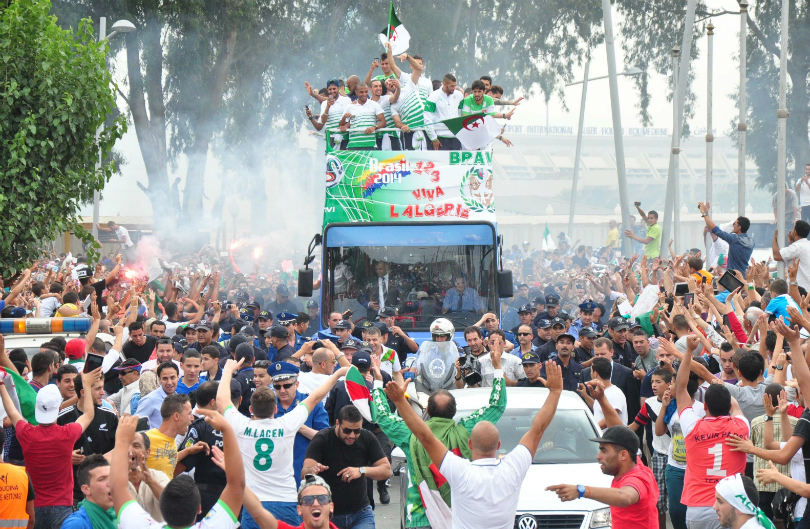
There were other upsets, not least Algeria qualifying for the last 16 ahead of Russia and South Korea, the USA and their powerfully irritating ‘I BELIEVE THAT WE WILL WIN’ cheerleaders edging out Portugal and Ghana, and then, of course, there was Costa Rica and Uruguay pulling down English and Italian pants. Ah yes, England. Remember those guys? England were such an irrelevance it’s barely worth discussing them.
Out in two games, six days into their tournament, the most positive spin that could be put on things is that the fans were quite good-natured in the game which yielded their single point, against Costa Rica. Nobody expected them to do much, but they managed to be disappointing anyway. One mark against the tournament, while perhaps not surprising, is that caution seemed to overtake everyone from the knockout stages.
Only one game produced more than three goals (we’ll get to that in a minute), as everyone seemed paralysed by the possibility of failure, rather than inspired by prospective glory. Which leads us neatly back to Brazil. This was a team that looked so terrified that they’d repeat 1950, they somehow contrived to subject the nation to something worse. “Brazilian football was reduced to dust,” wrote the venerable Brazilian football writer Juca Kfouri. “The Brazilians entered the field with a knife between their teeth and the Germans with ice in their hearts.”
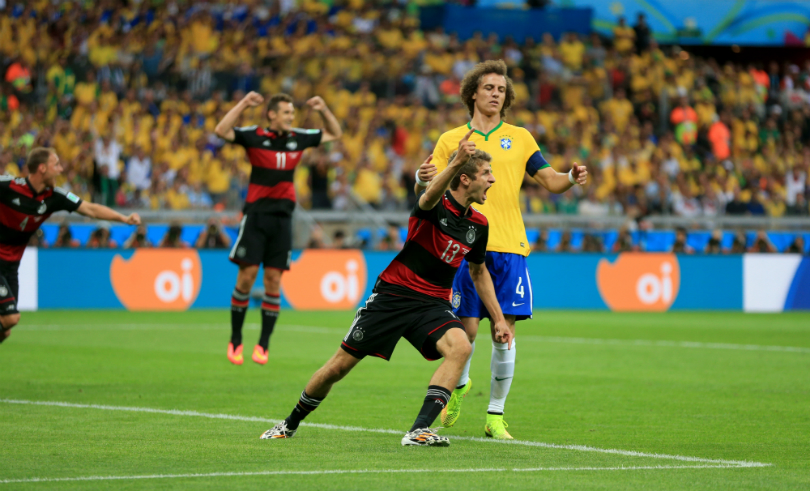
With good reason, everyone focuses on the tragedy of Brazil in that semi-final, as a footballing country simply swapping one national nightmare for another. But Germany were sensational, coldly exploiting every mistake that the petrified Brazilians committed. Savagely, they continued to throw punches even when their opponents were long dead – like it was the only way they knew. If you want a sign of how dominant they were, beyond the scoreline, watch how visibly miffed Thomas Muller was when Andre Schurrle nipped in front of him to score the sixth.
This was a World Cup semi-final, and their players could afford to focus on padding out their own records. Miroslav Klose broke Ronaldo’s all-time World Cup goalscoring mark in that semi-final, but Muller travels to Russia with 10 under his belt – and that record in his sights.
The final, as they tend to be, was a bit of a non-event, characterised by Gonzalo Higuain’s early miss and then about 100 minutes of heavy-legged dross. Mario Gotze’s winning goal was slightly incongruous, a fine strike from a player who would have been well down the list of predicted difference-makers before the tournament.
They were the winners of one World Cup in 2014. The other only had a loser.
World Cup Wonderland: stories, interviews and more
